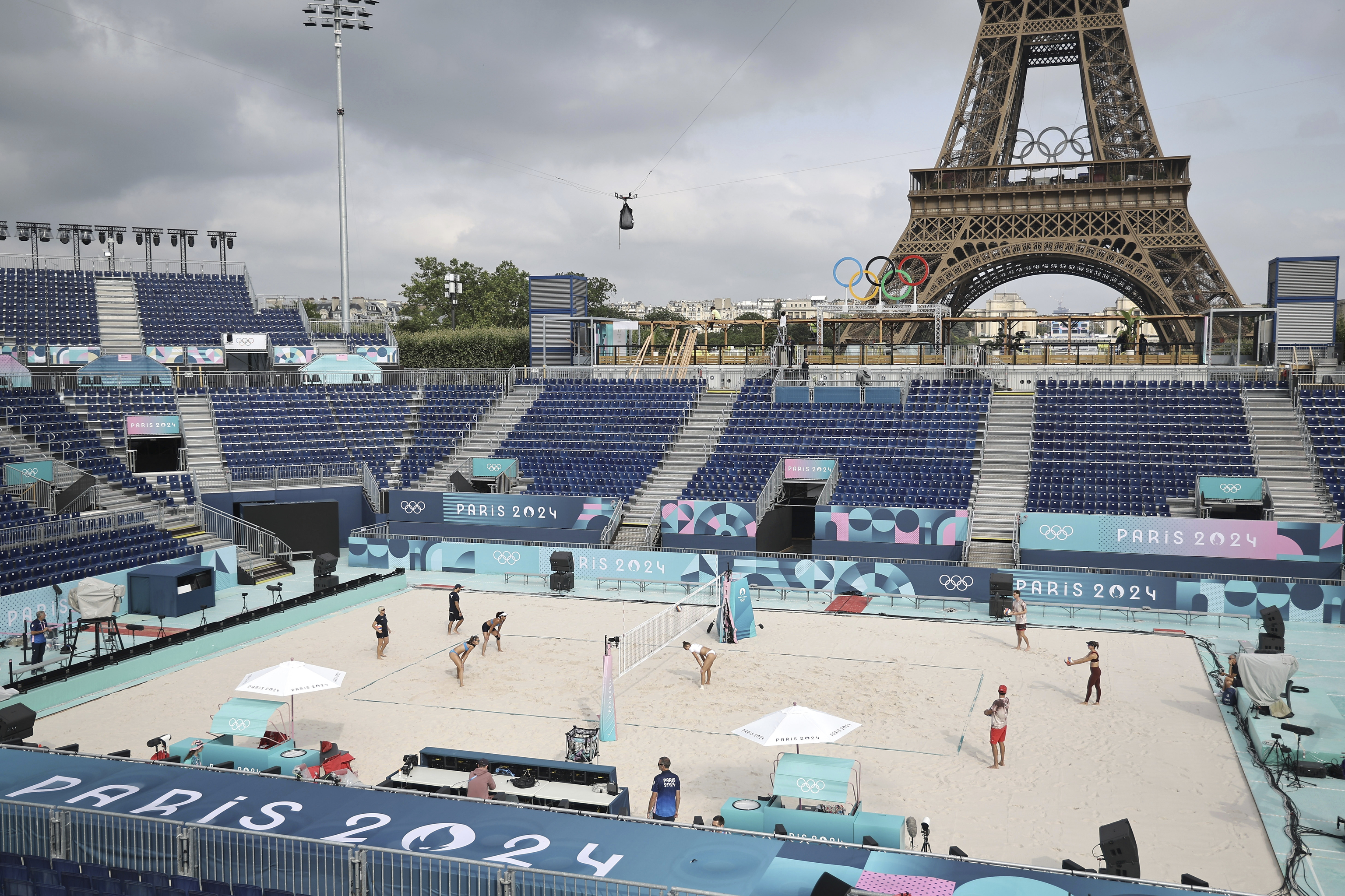If the weather doesn't spoil it, according to the organization's calculations, there will be two-thirds of natural light at sunset. The chosen time, the timing, and the setting: no one showcases beauty better than France. They will try to nail it in this opening ceremony of the Olympic Games, the third they host (alongside London, the only city with a triple) after those of 1900 and 1924.
The Seine, which has been cleaned and will be suitable for swimming again, one of the Olympic legacies, will be the common thread of a show that will last three hours and 45 minutes. It is the first to be held outside a stadium, in the heart of a city. France aspires for it to be the most spectacular ever seen in Olympic history. Paris can achieve it.
The city has been experiencing a kind of tense calm since yesterday. There is silence, contained excitement. There is not a great fervor in the streets, and there is also concern for security. Today, Paris is like a child on the night before the arrival of the Three Wise Men.
The show will transition to sports, but for a country like France, which places so much importance on symbolism, tradition, and history, this start is crucial to be able to celebrate everything else. The show is timed and measured to the second. It has been designed by Thomas Jolly, its conductor, along with the writer Leïla Slimane and the historian Patrick Boucheron.
Around 320,000 people will watch it from the Seine Riverbanks, in the installed stands, and another 50,000 in the fan zone. Some details are known. The event will have France's DNA: its revolutionary drive, the promise of equality and fraternity, and the reflection of its diversity. There will be a journey through history, but it will also be a ceremony of 2024. Dozens of heads of state will participate, including the Kings of Spain. The first boat to set sail on the Seine will be the Greek one, as tradition dictates, and the last will be the host's. The climax will be at Trocadero Square, with the Eiffel Tower at dusk.
There will be dancers, the Marseillaise, several visual compositions projected on screens along the route, and some of the key moments have been leaked: if there are no surprises, Lady Gaga will open the performance, Celine Dion will close with Edith Piaf's "Hymn to Love," and Aya Nakamura will cover Charles Aznavour's "La Bohème."
Who will be the athlete in charge of carrying the final stretch of the torch and lighting the Olympic cauldron is still a mystery. It will be in the Tuileries Garden. There has been talk of the former Marseille footballer Zinedine Zidane, one of the most esteemed in France, or the former athlete Marie-José Pérec, Olympic gold medalist. Another secret is what will happen right at the Eiffel Tower, at the end of the event.
A security bubble has been created to protect this moment. The Seine riverbanks have been confined, inaccessible for a week now and today heavily guarded. The airspace will be closed during the ceremony within a 150-kilometer radius, and no plane will be able to land at Parisian airports. The army has been inspecting the river waters for weeks, closed to navigation, and part of the ring road will be blocked, reserved for athlete transportation.
For months, work has been underway on this deployment, the largest in the capital and the biggest headache leading up to this event: There are 45,000 agents, including police officers, gendarmes, private security, military, and foreign police. There was a plan B, and even a C, in case of an imminent attack (which has not had to be activated so far), although much less spectacular than the Seine at sunset scenario.
